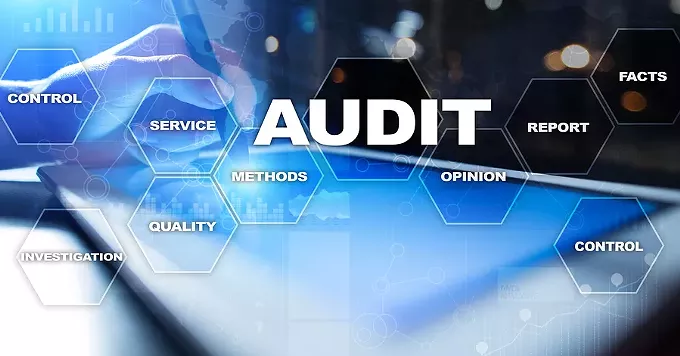Tuesday, February 5, 2019
Charter School Reform Legislation: The Good, The Bad and The Unknown
SB 1394, a bill intended to bring more oversight and regulation to charter schools, hasn't gone anywhere yet. Like lots of other bills, it's waiting to be considered, amended or ignored to death.
The bill has some good stuff in it, but it also has a loophole big enough to drive an eighteen wheeler through packed tight with all the state's Charter Management Organizations. That means lots of charter schools, including the entire BASIS chain, won't be bound by the new regulations.
There are charter schools, and then there are Charter Management Organizations.
Everyone knows about charter schools. They're buildings filled with teachers and students, just like other schools. (Online charters are the exception, where students work at home sitting in front of their computers [or that's the plan anyway. Whether they're actually sitting and working is another matter]). Like school districts, charters are supported by taxpayer dollars, but with fewer regulations and restrictions.
But not everyone knows about Charter Management Organizations. CMOs work with one or more charters. In some cases, they're outside management companies hired by the schools to take care of things like administrative and accounting duties. In other cases, the CMOs run the whole shebang. They're like school districts in charge of their schools, overseeing everything from curriculum to purchasing to the hiring and firing of administrators and teachers.
Not all charters use CMOs, but lots do, including well known Arizona-based charter chains like BASIS and Great Hearts. Arizona also has charters that belong to national chains, like Imagine Schools with 12 Arizona campuses and online schools like Arizona Virtual Academy, which is part of the publicly traded corporation, K12 Inc.
Charters with CMOs get money from the state based on how many students are enrolled just like everyone else, but they send a portion of their money upstairs to the CMO, where it disappears from sight. In the case of the charter chains I mentioned above, the schools send nearly everything upstairs.
No one on the outside knows how the CMOs spend their money, including Arizona's Charter School Board, the Auditor General and the Attorney General. It's a form of legal money laundering. Once the money flows from the charters to their CMOs, it's cleansed of the government's fingerprints and becomes theirs to spend pretty much as they wish.
So, back to the SB 1394. Currently, the rules on spending by charters and CMOs are ridiculously lax, allowing cronyism and profiteering to run rampant. The bill has regulations intended to stop some of the more flagrant violations. Like...
Charters won't be able to buy goods and services from the owners' relatives or buddies at some ridiculous price far above market value. The purchases have to be made "in the best interests of the charter school," meaning price and quality of the goods and services have to be taken into consideration.
Charters can't buy from family or members of the school's board members either, unless they can demonstrate the purchases are in the school's best interests — especially large purchases over $50,000.
Charters have to use "generally accepted accounting principles."
If the charter's sponsor — in most cases, that's the Arizona Charter School Board, a school district or a university — detects serious problems with any of these issues, it can ask the state Attorney General to look into the problems.
The bill's regulations are all moves in the right direction. They should make it harder for charter owners and their friends to use the schools as their personal ATMs.
But there's one serious problem with the regulations. They don't apply to CMOs.
Here's the gigantic loophole at the end of the section of the bill about the new regulations.
THIS SECTION DOES NOT APPLY TO MANAGEMENT CONTRACTS ENTERED INTO BETWEEN A CHARTER SCHOOL OR CHARTER HOLDER AND A CHARTER MANAGEMENT ORGANIZATION IF THE CHARTER SCHOOL DISCLOSES THE TERMS OF THE MANAGEMENT RELATIONSHIP AS REQUIRED IN SECTION 15-183, SUBSECTION JJ, PARAGRAPH 13 TO THE CHARTER SCHOOL'S SPONSOR.In other words, if you launder the money through a charter to a CMO, it can spend the cash pretty much any way it damn well pleases just like before, and no one will be any the wiser.
Here's a possible unintended consequence of the loophole which could actually make things worse. If charters are held to stricter purchasing requirements than CMOs, more charters could decide send more money to the CMOs to do their purchasing for them. Some may even set up their own dummy CMOs to avoid regulation.
The bill's main sponsor is Republican Senator Kate Brophy McGee. She barely edged out her Democratic challenger Christine Marsh, a former Arizona teacher of the year, in the last election. To help her beat Marsh, Brophy McGee emphasized how pro-public education she is, which is reasonably accurate if you give her a Republican discount, and how she's for added charter school accountability and regulation. You could say her bill fulfills a campaign promise, right up until you get to the CMO loophole, which turns the new regulations into a sham. Brophy McGee won't say if charter school lobbyists helped her add the CMO-friendly language.
There are lots of unknowns since the bill has yet to be considered. Brophy McGee says she wants to tighten up the language to make CMOs more accountable. That may happen. But that would make the bill harder to pass with the pro-charter Republicans holding the majority in the House and Senate. If a rewritten bill does a good enough job of holding CMOs accountable, it may not even make it to the floor for a vote.
Stay tuned. No matter what happens, we're going to learn something. In the 1990s, Republicans intentionally created Arizona's Wild West charter school system, where controls are few and freedom from oversight is the rule, based on conservatives' belief that the "invisible hand of the marketplace" will work its magic if it's left to its own devices. We'll find out if Republicans are serious about reining in the worst excesses of the system they created.
A Southern Arizona Sponsors Note: Brophy McGee's bill has eleven co-sponsors, including Southern Arizona's Senator David Bradley and Representatives Alma Hernandez and Daniel Hernandez. I'm hoping they all signed on with the idealistic intention of improving the bill before it comes up for a vote. I hope they're not rationalizing their sponsorships by saying "Something is better than nothing." In fact, as the bill is currently written, nothing is better than something. If the bill becomes enshrined into law as is, it will put an end the push for genuine charter school oversight and reform for years to come.
If the loopholes remain in the bill, all the Democratic sponsors including the three from S. AZ should publicly remove their names and discourage other Democrats from voting for it.
Tags: SB 1394 , Charter schools , Charter Management Organizations , education , schools , K12 , legislation , Image

















